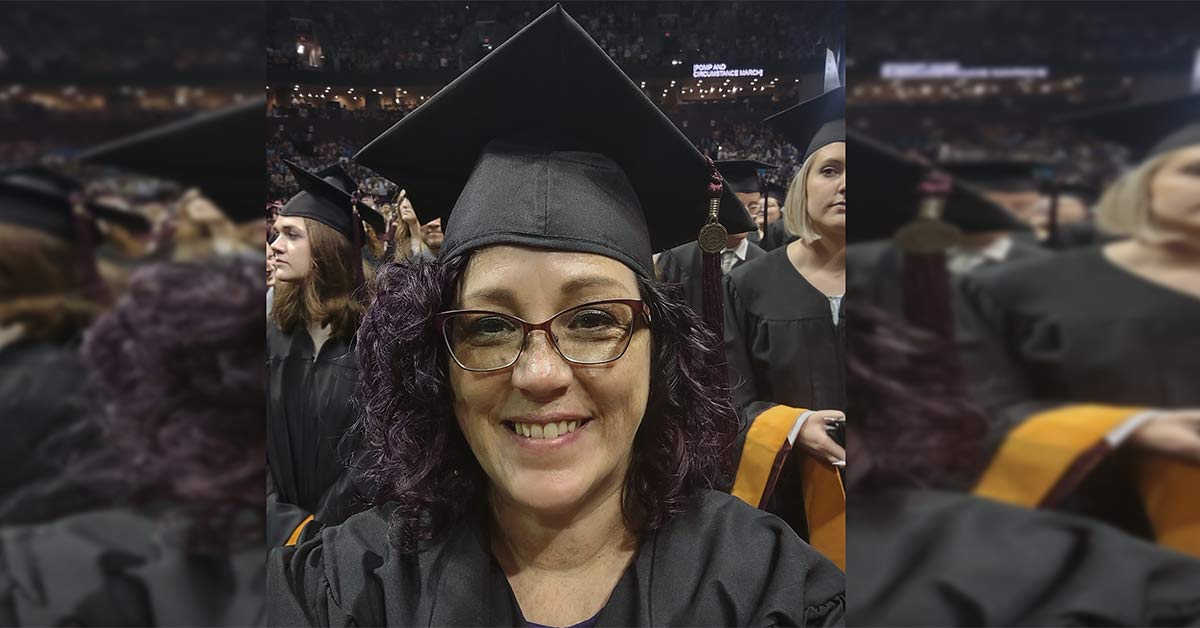When Mary Finzel of West Plains earned her undergraduate degree in psychology, she never considered social work.
In her mind, social work majors were case workers.
But when she decided to pursue a master’s degree, Finzel realized that a master’s in social work could open so many doors.
“I could do so many things. I could be a clinical manager, a program director. I can work in any kind of advocacy for people, social justice advocacy. I could go into industrial facilities, factories and help with human resources,” she said.
Finding support in an online program
As an untraditional student returning to school, Finzel was attracted to the fact Missouri State offers a Master of Social Work that can be earned 100% online.
She had trepidations because she’d never completed a degree online, but felt she had the discipline to do it.
“Then I realized I really liked it because it was very convenient for work and personal life. I didn’t have a set schedule that I had to go by, other than when my assignments were due,” she said.
“I don’t like being restrained to one position, I want to be able to do multiple positions and wear multiple hats, and so that’s what really pulled me to the degree in social work.”
The mother of two chose Missouri State because of its accreditation, history and stellar reputation.
The professors were supportive and provided a lot of feedback.
“Professors were always available for communication through email, Zoom, phone calls, just whatever I needed. I had some personal family issues going on in the beginning … and I communicated that to my professors and they were more than willing to give me some grace. Since it’s all online, that feedback from the professors is really important because it lets you know what you’re doing well in, what you need to improve on,” she said.
Another strength of the program was the diverse lineup of classes — there’s a broad spectrum of information.
Driven to help others
The 44-year-old graduated in May 2022 with her Master of Social Work.
A Mountain View native, for the past few years she has worked as an Integrated Co-Occurring Disorder specialist. She works in a substance abuse treatment center for adolescents.
Upon graduation, her title changed to diagnostician. She received a promotion and pay raise. The degree had already paid off.
Finzel has always wanted to work in some capacity helping others.
“I had a lot of trauma in my childhood and mental health runs in my family,” she said. “I have two sons with special needs. … I decided I wanted to be available to help people in the way that I needed help whenever I was younger. Because I’m from a small town, there just wasn’t those services available in my area, and so I wanted to be able to have that positive impact on others the way I didn’t have those resources when I was younger.”

